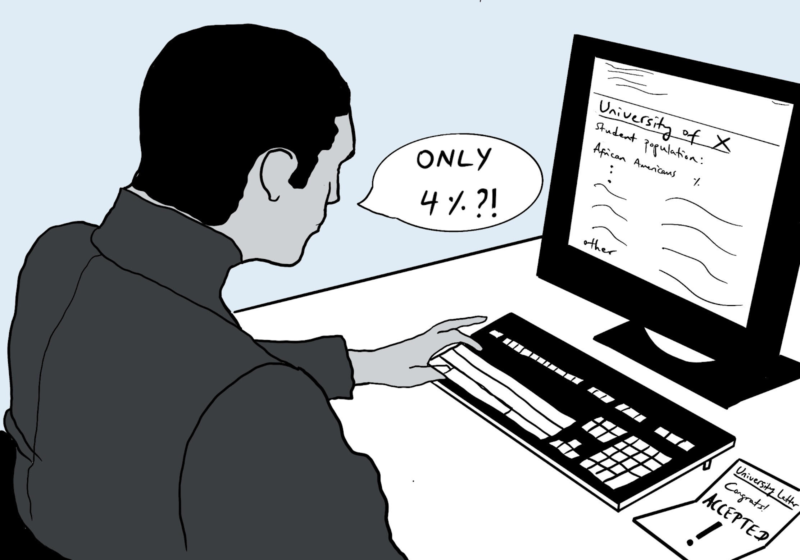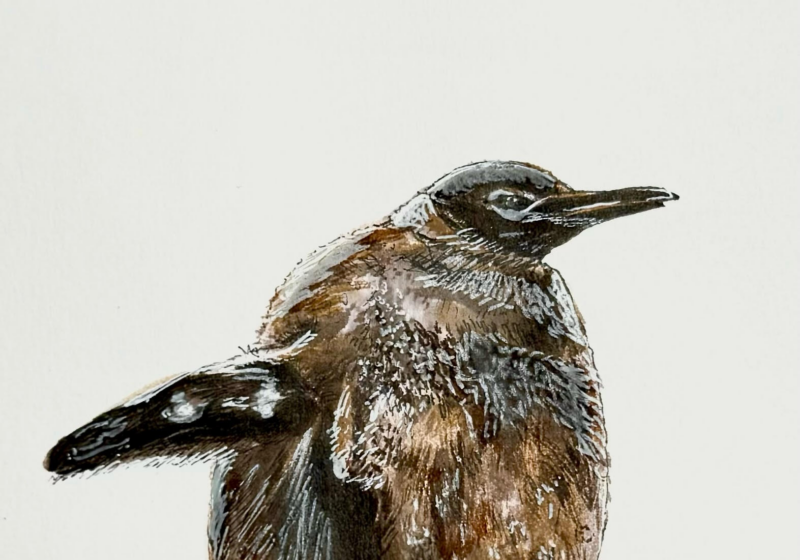When we have conversations about race, it is usually in response to racist-induced incidents like when a white college student calls the cops on a black student for sleeping in a common area, some students wear blackface, or somebody hangs bananas from nooses around campus. Although these are awfully disgusting events which deserve to be condemned, focus on them often means we tend to overlook the daily role that race plays in the lives of people of color. Beyond hashtags, events, and some white supremacist tactics, race is about the daily experiences and struggles that people of color, and particularly black people, face all around the world.
Being a black person means you have to live in a world where you are constantly reminded of the color of your skin. My black roommate who had a long-standing attitude of being oblivious to racism came to our room one night looking distraught and dismayed. He looked at me and wondered whether he had just experienced racism. While he was taking the elevator up, the doors opened to a white woman who’d been waiting outside. After they made eye contact, the lady hesitated and decided to stay outside the elevator. Of course, there could have been thousands of reasons behind her decision. Nonetheless, that woman’s choice served as a reminder to my friend that people will always see his skin color first.
More gravely, the burden of being a person of color can mean fighting for your life. It is reflected in the lines you rehearse and prayers you say when pulled over by the cops. It is forcing a law book down an infant’s throat as if it were oxygen. It is telling a twelve-year-old boy that pointing a toy at the wrong police officer could result in his death.
Race is the constant societal demand to explain your existence to the world. It is the involuntary energy you must expend to constantly remind yourself that you deserve to be in a predominantly white campus. It is working so hard to prove that the reason you’re in a prestigious university is not because someone felt sorry for you.
The thing about being black is that you are black all the time, which means that challenges you face by virtue of being black are also experienced all the time. It is a staple diet that society continues to serve black people on a daily basis. The problem with most well-meaning white people who sympathize with blacks is that they can “un-black” themselves. They can attend Black Lives Matter protests, decry racial discrimination, and call out racism, but at the end of the day, they have the privilege to go back to their lives and forget about the challenges that come from being a person of color.
Therefore, if your skin is not black, you can never fully understand what it means to be black anymore than I can claim to understand what it means to be white, asian, or latino. Which is why it is such a nuisance when white people appropriate blackness. You don’t get to share the glamor of my culture if you have the privilege to escape the scars that come by virtue of it.
As a black person, race involuntarily connects me to every black person in the world. Beyond the color of our skin, it is the fight within each of us that we didn’t choose to be part of but somehow have in common. It is reflected in the slight head nods to black strangers, the assurance that even in our invisibility, we see each other.
At times, race is about fighting stereotypes about the color of your skin — whether consciously or subconsciously. It is pretending not to see white women clutch their purses when they see you, or ignoring the fact that you are being followed in a grocery store. It is to think twice before you put your hood up and walk down the street, or to stretch yourself so far to prove that you are not angry, that you are not a threat.
To express the daily, constant, and systematic struggles faced by people of color around the world, Ijeoma Oluo powerfully recollects this experience in her book “So You Want to Talk About Race,” saying “if I stopped to feel, really feel, the pain of the racism I encountered, I would start screaming and I would never ever stop.” This is why when black people choose to love themselves, it is a radical act. This is why labels such as “black is beautiful” and “black girl magic” exist, because surviving in black skin is an act of defiance. This is the reason saying you “don’t see color” is not only to deny my experience but also my existence. Not to see my color is to not see the experiences and challenges that I face because of it. To not see my color is to not see me.





